Posted on 12/22/2021

Does the air coming out of your car vents stink? You're not the only one. It's happened to the best of us. There are a few reasons your car vents smell bad that have nothing to do with hygiene. Why Do My Car Vents Smell? The most common reason is bacteria and mold buildup inside your air conditioner vents. This is especially the case where vehicles are stored or driven in hot and damp climates. If you want to have your car vents serviced or, if you suspect that something other than build-up in your air vents is causing the issue — contact our certified auto shop for advice. Can you remember what happened right before you noticed the smell? Did you turn on the air conditioner or heater? Answering these questions will help your mechanic make an accurate diagnosis of the problem. Dirty air filters are another culprit that can cause a foul smell to come from your vents. Mechanics normally replace dirty air filters when you ... read more
Posted on 11/29/2021

Are you planning a holiday road trip soon? If your answer is yes, why not spice up the car ride with your family by playing some holiday tunes? Before you embark on your holiday journey, look at our list of both timeless classics and newer renditions of your favorite holiday songs. Here is Hyland Auto Repair's list of the top holiday songs to play on your winter road trip: All I Want for Christmas is You by Mariah Carey. (obviously!) Rockin Around the Christmas Tree by Brenda Lee. Last Christmas by Wham! Wonderful Christmastime by Paul McCartney. It's Beginning to Look A Lot Like Christmas by Michael Buble. (or his entire Christmas album) It's The Most Wonderful Time of the Year by Andy Williams. Winter Wonderland by Bing Cosby. Blue Christmas by Elvis. Santa Baby by Eartha Kitt. Little Saint Nick by The Beach Boys. Mistletoe by Justin Bieber Jingle Bell Rock by Bobby Helms Have Yourself a Merry Little Christmas by Sam Smith. A Holly Jolly Christmas by Burl Iv ... read more
Posted on 10/21/2021

At some point in time, every pet owner faces the hassle of cleaning up your furry friend's shedding hairs. Your fur-ball may be adorable, but the accumulation of stray hairs may be a very unpleasant sight to see every time you get in the car. If you allow the pet hair to collect over a long period, pet hair can cause more problems than a dirty appearance. It can cause allergies, skin rashes, asthma, and even throat infections for individuals with sensitivities. Therefore, removing pet hair from your car is sometimes not a choice but a must. If you've been looking for easy and reliable methods to get the job done, you've come to the right place! Vacuum This one is obvious, but sometimes it doesn't make sense to drag a big household vacuum. Given the space constraints of the average vehicle, a small-sized hand-held vacuum cleaner with a brush or a bristle attachment would be the best investment for your car. Portable vacuums are smaller, so you're mor ... read more
Posted on 9/27/2021
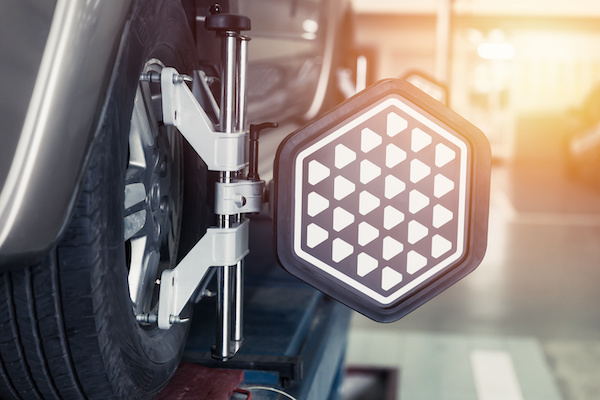
Proper wheel alignment is essential for various reasons - alignments ensure that drivers have adequate control of their vehicle, keep the wheels and brakes working correctly, and avoid excessive/premature tire wear. A wheel alignment is a service consisting of adjusting the angles of your vehicle's tires to manufacturer specs. Most vehicle manufacturers have different directions for how often your automobile needs a wheel alignment. However, it usually ranges from once a year to every two years. It is generally dependent on the amount of driving you do and how you handle your vehicle. A wheel alignment sets the caster, camber, and toe for the front wheels on your car. Although the service is usually routine, sometimes you may need an alignment sooner than you think. In cases where your vehicle's tires are forced out of alignment, like hitting potholes, speedbumps, and debris, then you'll need one ASAP. Below are the following signs your vehicle may display its need ... read more
Posted on 8/23/2021
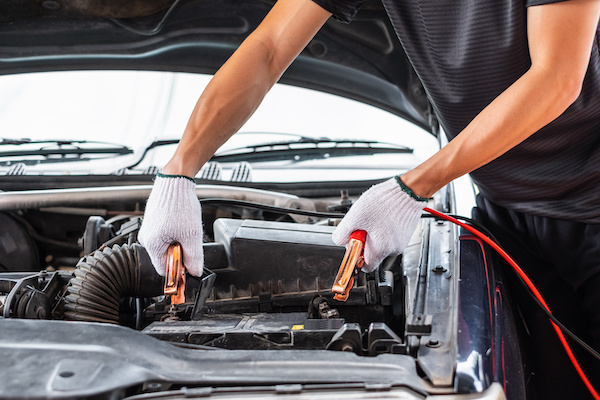
Your car battery is a basic yet fundamental piece of equipment that we all tend to take for granted – until it stops working! You need this essential piece to be able to start your car. Additionally, it also provides power to the electronic components throughout the vehicle (stereo, lights, power windows/doors, electric power steering, etc.). Most vehicle batteries will last an average of 4 to 6 years, depending on the quality of the battery. The longevity of the battery is also affected by the temperature it sits in, engine vibration, and any after-market items that have been attached that need access to the battery. The most proactive strategy that you can take to your battery is to request to have it tested when your vehicle is in the auto shop for other reasons (oil change, tire replacement, maintenance, etc.). A load test is more than simply checking if the battery is charged – it sets the battery under the same conditions as if your car's starter was usin ... read more
Posted on 7/21/2021
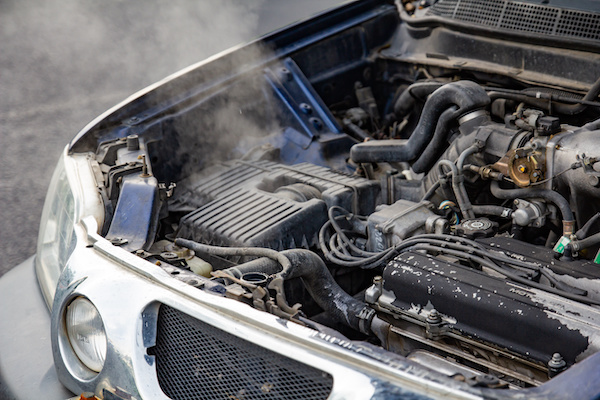
It can get H-O-T in Tempe, AZ, during the summer months, which enables your car's engine to overheat faster if it is not cooled correctly. Your car's engine must have an adequate amount of coolant supplied consistently to maintain a stable temperature. That's where the water pump comes in - it is an engine component that supports the coolant flow. When it's not functioning precisely, your engine will overheat and suffer from irreversible damage. Here are the top three symptoms of a failing water pump to look out for in your vehicle: Coolant Leaks When you notice some puddles sitting front and center of your car, it may indicate that your water pump is at risk. When the seal and gaskets come off, the flow of the coolant will become disrupted, and the coolant will leak. Whining Sounds A loose water pump belt, or pulley, makes whining sounds when it ages. A whining noise coming from the engine area signifies that the water pump has developed some proble ... read more
Posted on 6/24/2021
.jpeg)
The check engine light usually flashes on the dashboard with an amber color—or a similar color depending on the car's model. The dashboard appears eye-catching with the colorful gauges and meter lights, but don't let the appearance of an indicator light fool you. The check engine light is not just a neon flash but a sign that there's a problem with your engine. That's enough reason to make your stomach churn. The only disadvantage is that the motor can suffer a range of failures, and it becomes difficult to tell what the issue is when the check engine light illuminates. It might mean anything minor like a poorly fastened gas cap or a complicated problem like engine misfiring. The engine sensors connected to the vehicle computer signals it when there is any malfunction or failure within the engine block and its related parts. The computer system then triggers the engine light to flash, sending a visual feed that you see on the dashboard. Nonetheless, the real cau ... read more
Posted on 5/27/2021
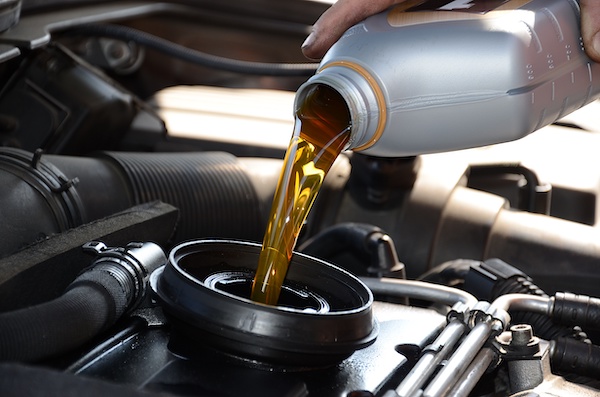
Every vehicle requires maintenance and upkeep in order to function correctly and reliably, with the ability to get you and your fellow passengers to all your desired destinations. One important aspect of proper maintenance is the timely flush and exchange of all the necessary fluids that keep your vehicle's engine and transmission components functioning in top condition. These are the most important fluids within your vehicle that need to be replaced periodically: Brake fluid is both a lubricant and used to aid in the movement of the brake pedal to engage the brake pads at the wheels. It is essential to have your braking system work properly. For best practices, make sure the brake fluid never goes below the minimum amount required, and that the fluid gets flushed and refilled with new fluid according to manufacturers' recommendations. Power steering fluid is also very important to your vehicle's proper functioning, as it allows you to turn your ste ... read more
Posted on 4/26/2021
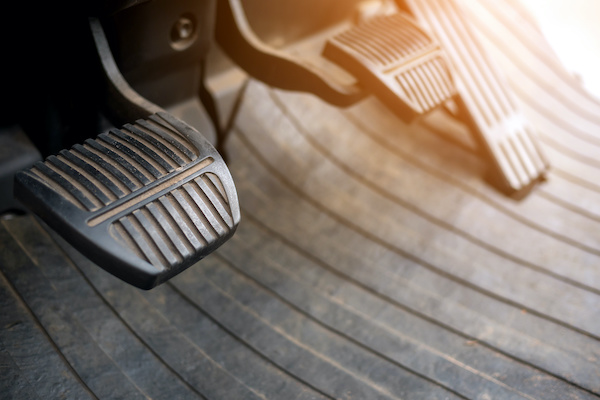
Your brake lines transform the brake pedal into action as you apply pressure to stop your vehicle. They serve as the communication system that tells your brakes when to stop. Yet just like any ordinary mechanism, they can have anything go wrong with them at any time. Brake lines contain brake fluid that is vital to your ability to stop immediately. This fluid is carried from the master cylinder and goes straight into the calipers once you apply the pressure. And that's when your vehicle comes to a full stop. This action is prominent in hydraulic brake systems where fluid brakes and brake pads are used. One of the most common problems that can happen with your brake lines is the invasion of air. Air can get into them and result in a vehicle's inability to come to a full stop. Just imagine cruising down a busy highway only to have to stop suddenly. If air were inside your brake lines, something fatal could happen. A wreck might ensue if you cannot stop right in time, so knowing ... read more